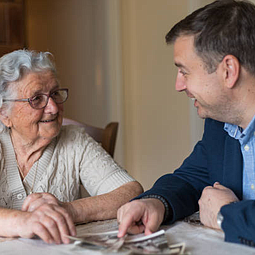Seattle-area Dementia Friendly Recreation
February 28, 2014 at 6:00 a.m.
Throughout 2014, Seattle Parks and Recreation will pilot a variety of recreation programming geared to persons who live with memory loss. These “dementia–friendly” activities are intended to enhance the lives of those living with early stage memory loss. Care partners are also welcome to participate. Programs offer participants a chance to engage, create, learn, and be active, all in a stimulating and supportive environment.
Seattle Parks and Recreation will work with other innovative community partners such as Greenwood Senior Center, the Alzheimer’s Association, Aegis on Madison, Elderwise and Outdoors for All, to offer a variety programs such as a vigorous fitness class at Miller Community Center, watercolor painting at the Seattle Japanese Garden and Volunteer Park, a snowshoe hike near Snoqualmie Pass, a memory loss walking group at Woodland Park Zoo, and a volunteer program at Cherry Street Food Bank.
“The Memory Loss Zoo Walk is designed to get us out into the fresh air so we can have fun and socialize, and to help us feel we’re part of a supportive community,” says one participant who lives with memory loss.
Dementia-friendly recreation is part of a program recognizing that people living with dementia can lead full and meaningful lives.
“The food bank volunteer program is a fun way for my dad to keep engaged and be social without any expectations or pressure,” says the daughter of a man living with memory loss.
Over 5 million Americans live with Alzheimer’s disease, and that number is expected to triple by the year 2050. Many who are diagnosed feel fearful, lost and alone. But it doesn’t have to be that way. Many living with memory loss are finding opportunities to stay connected and enjoy life.
“It’s exciting that we’re working with community partners to expand opportunities for people living with memory loss,” says Parks Recreation Specialist Mari Becker. “Even more exciting is that people living with memory loss are engaged in designing the kind of programs they want to see happen. And it’s exciting to be part of a movement, telling a new story about what it means to live with dementia. For too long, the dementia story has been all about fear, loss of purpose, and isolation. The new dementia story is about hope, meaning and connection. And the entire community can play a part in making that happen!”
For more information, to volunteer, or to register for a program, please contact Recreation Specialist Mari Becker, 206- 684-4664.




